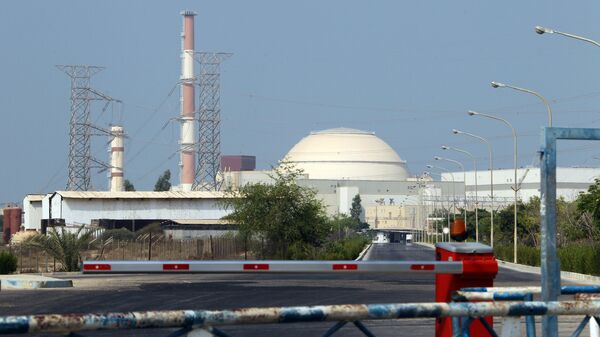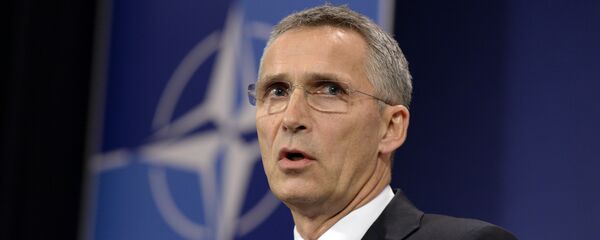Israeli Intelligence Minister Yisrael Katz called for a military coalition against Tehran if it proceeded with enriching military-grade uranium.
“If the Iranians don’t surrender now, and try to return” to unsupervised uranium enrichment, “there should be a clear statement by the president of the United States and all of the Western coalition. The Arabs and Israel surely would be there too,” Katz told Israel Radio, adding that if Tehran decided to restart uranium enrichment; “a military coalition will be formed against them [Iranians].”
READ MORE: Israel Strikes Back at Iran With 'Mean Girls' Gif After Tehran's Threats
Speaking at a conference of the Institute of Certified Public Accountants in Eilat, Israeli Defense Minister Avigdor Lieberman blasted Iran’s statement that it would begin work to boost uranium enrichment capacity.
“Supreme Leader Ali Khamenei’s declaration is a sign of hysteria and mass panic in the Iranian leadership,” Lieberman said.
Prime Minister Benjamin Netanyahu has also commented on the matter, pledging not to let Iran obtain nuclear weapons.
“Two days ago Ayatollah Ali Khamenei, the leader of Iran, said he intends to destroy Israel. Yesterday, he explained how he wants to do it – with unlimited uranium enrichment to create a nuclear arsenal,” he said.
Just yesterday, Iran’s leader said again that Israel is a cancer that has to be and will be eradicated. It’s amazing that in the 21st century, somebody talks about destroying Israel. It means destroying another six million plus Jews. This is what we face.
— Benjamin Netanyahu (@netanyahu) 4 июня 2018 г.
The ministers’ comments come a day after Ayatollah Khamenei announced that Iran would inform the UN nuclear watchdog that preparations for increasing uranium enrichment capacity would begin on Tuesday.
Iranian nation & government will not stand being under both sanctions & nuclear restrictions. The Atomic Energy Organization of #Iran must immediately make the preparations for achieving 190K SWU-- for now within #JCPOA-- starting tomorrow.#IranDeal
— Khamenei.ir (@khamenei_ir) 4 июня 2018 г.
“The words uttered by some European states indicate that they expect the Iranian nation to both agree to comply with the nuclear deal undertakings and live under sanctions,” Khamenei added.
Spokesman for Iran's Atomic Energy Organization Behrouz Kamalvandi reportedly said that Khamenei "meant that we should accelerate some process… linked to our nuclear work capacity to move forward daster in case needed."
READ MORE: Netanyahu: Iran Wants Nuclear Arsenal to Destroy Israel
Earlier on Tuesday, Iran's atomic energy chief Ali Akbar Salehi emphasized that Tehran had developed infrastructure to produce electricity at the country's Natanz facility, saying that the Islamic Republic had notified the UN that it will install centrifuges for the uranium enrichment there.
The Joint Comprehensive Plan of Action (JCPOA), also known as the Iran nuclear deal, has been jeopardized since US President Donald Trump announced his decision to withdraw from the agreement and reinstate anti-Tehran sanctions, lifted as part of the international accord.
As European states and China reiterated their commitment to the nuclear deal, Iran’s foreign ministry stated that in spite of Washington’s move, Tehran would abide by its obligations under the deal, calling on the international community to stand up against “US law-breaking behavior, bullying and disregard for the rule of law.”
At the same time, relations between Israel and Iran have dramatically escalated over the latter’s alleged military presence in Syria, being further exacerbated by a suspected Israeli attack in the suburbs of Syria’s Damascus against arms depots, which according to Tel Aviv belonged to Tehran’s Revolutionary Guards.
READ MORE: New US Coalition Against Iran is Doomed to Fail — Analysts
The deal was inked in 2015 by the EU and the P5+1 group of states – Russia, the US, China, France, the UK and Germany – and Iran. Under the agreement, Tehran agreed to maintain the peaceful nature of its nuclear program in exchange for gradual lifting of sanctions.



